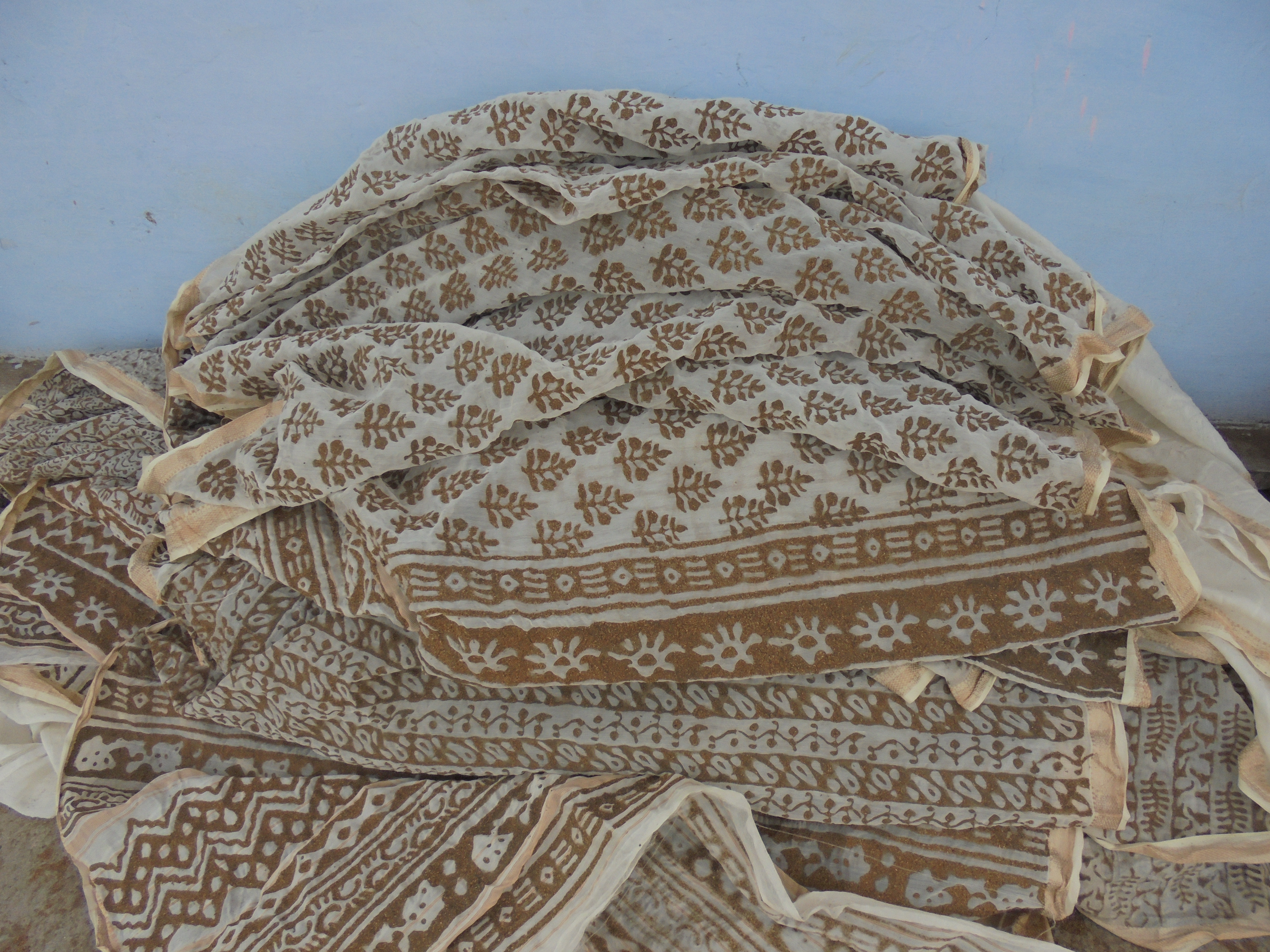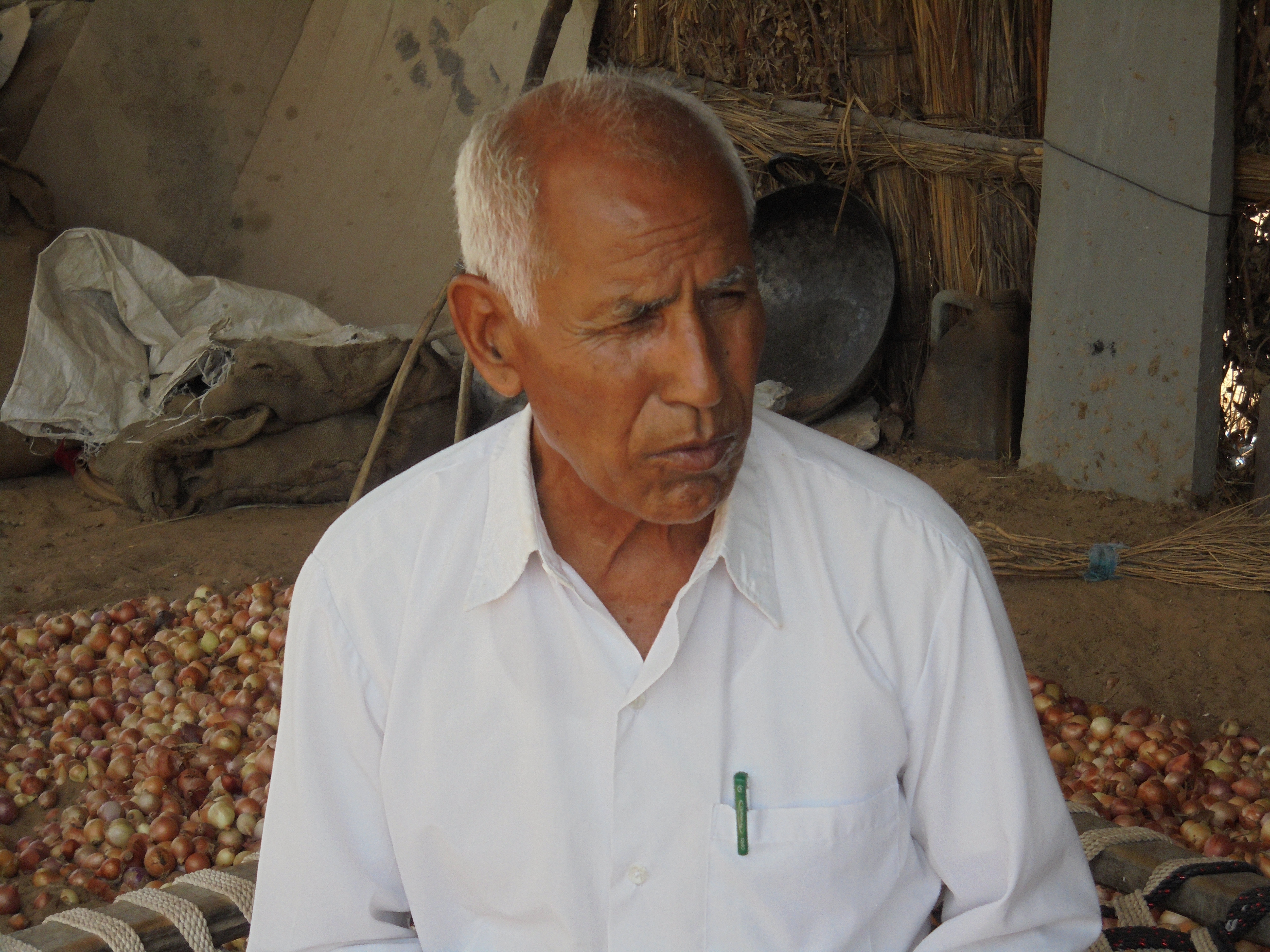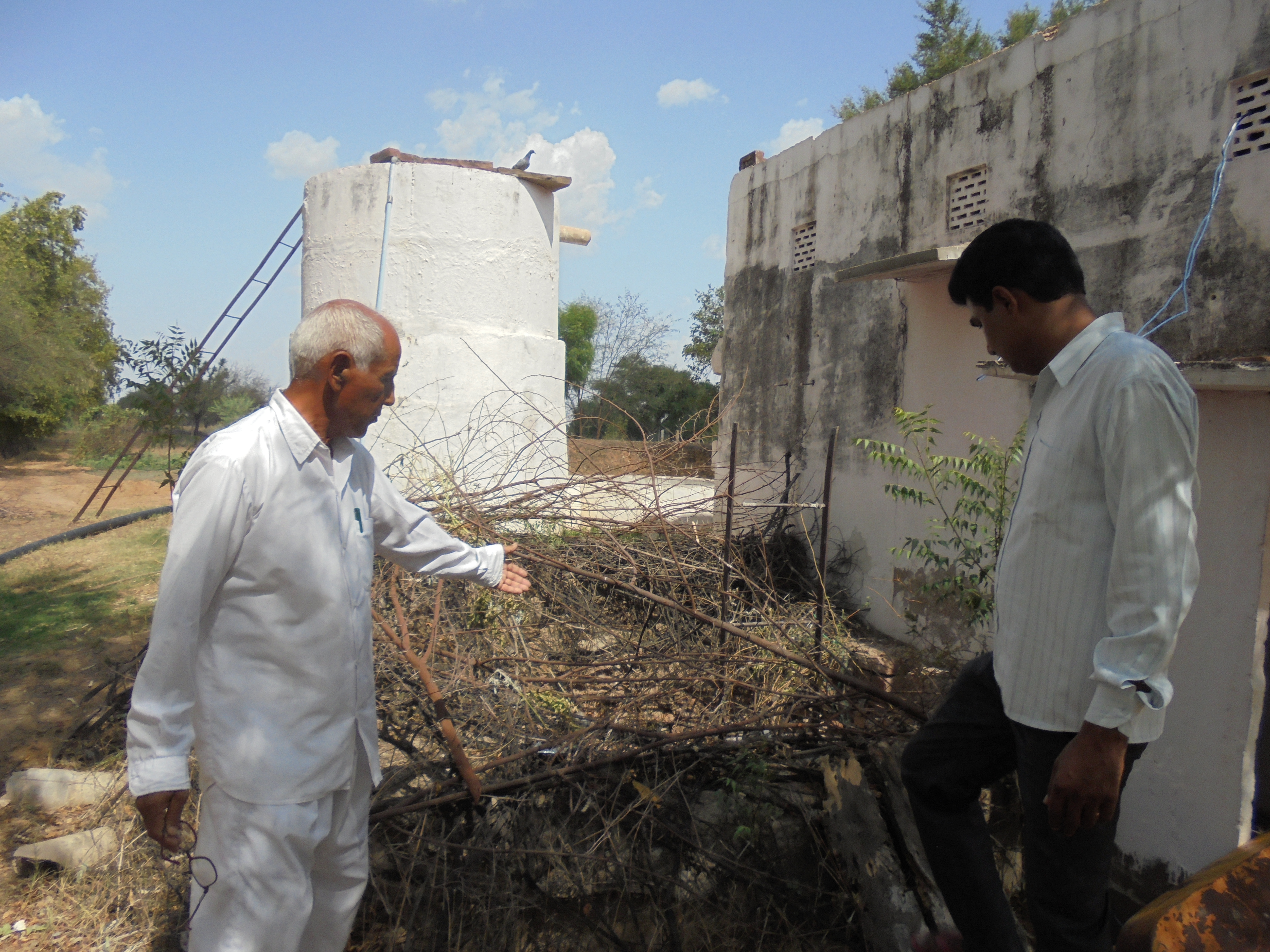Kaladera, a small village about 40 km from Jaipur has always been known for its chaubandi (mud resist printing) and natural dyeing but it has been getting a lot of attention since 1999. No, it's not because of the handicraft but because of Coca Cola, which set up a bottling plant there. Soon after the plant was functional, the groundwater levels in the area began to reduce forcing the locals to protest.
View Kaladera in a larger map
Kaladera already had an industrial park set up by the Rajasthan Industrial Development and Investment Corporation Limited (RIICO), which houses manufacturing plants ranging from oil to cement. The locals, already upset with the government for diverting their gochar (grazing) lands to set up the park, were even more furious when the plants opted to employ outside labour from faraway places like Bihar. With no job and no option, the locals were left to deal with the declining water table.

'Open Unhappiness'
Bodhu Ram, a resident of Kaladera, says that where water could be reached at just 20 ft in 1999, there is no water even up to 500 ft today. He is worried about the future investment this entails for the locals since people are already investing Rs. 2.5-3 lakhs to deepen their wells every 3-4 years. This year Bodhu Ram has to arrange for bigger motors to go deeper. “We are totally dependent on agriculture, which is suffering here. In the absence of green fodder, livestock too cannot survive. If you take away our water from us then how should we live? We are forced to migrate to the adjacent towns of Chomu and Jaipur for daily wages”, he says.
The villagers protest
After retiring as Director of Agriculture from Rajasthan's Jhunjhunu district, Rameshwar Kudi arrived at Kaladera only to find himself in a role that he never expected. More a yoga enthusiast than an activist, he has since started marching alongside environmentalists and farmers and is a hardened campaigner. He presides over the struggle committee ‘Kaladera Sangharsh Samiti’ set up along with other farmers who are against the bottling plant. The Samiti takes up issues related to over 32 villages that are affected by the Coca Cola plant.
 Kudi wonders why Coca Cola chose Kaladera to set up shop in the first place. For one, the area is semi-arid with frequent droughts and a low average annual rainfall of just 595 mm. Second, people depend on groundwater for all their needs. The Central Groundwater Board had in 1998 declared the groundwater situation as "overexploited", a term that denotes that the withdrawal rate exceeds the rate of natural recharge. "It is unusual that the prospect of exploiting the scarce groundwater reserves in Kaladera enticed Coca Cola", he says. What’s more, the government gave the company many incentives to do so and now, in addition to creating water shortage, Coca Cola is also polluting the groundwater. Farming is at a tipping point because of falling water tables.
Kudi wonders why Coca Cola chose Kaladera to set up shop in the first place. For one, the area is semi-arid with frequent droughts and a low average annual rainfall of just 595 mm. Second, people depend on groundwater for all their needs. The Central Groundwater Board had in 1998 declared the groundwater situation as "overexploited", a term that denotes that the withdrawal rate exceeds the rate of natural recharge. "It is unusual that the prospect of exploiting the scarce groundwater reserves in Kaladera enticed Coca Cola", he says. What’s more, the government gave the company many incentives to do so and now, in addition to creating water shortage, Coca Cola is also polluting the groundwater. Farming is at a tipping point because of falling water tables.
Kudi also notes that the bottling plant has not been meeting the mandatory wastewater discharge standards of the Rajasthan State Pollution Control Board. Kudi was instrumental in fighting for the High Court ruling in Rajasthan in 2004, which directed that all soft drinks should, in addition to the ingredients, also display the amount of pesticides used on the product label.
Mahesh Yogi, another local who heads the struggle committee in Kaladera has been seeking information from the Government in this regard through the Right to Information Act but to no avail. Coca Cola on the other hand refuses to share the Environmental Impact Assessment (EIA) of the project. The company says that it operates four borewells, which are 100 meters deep. The locals say that the numbers could be more. The company declares that it has halved its water withdrawal of about 200,000 cubic meters of groundwater per year during the period 1999 to date (2014). Yet the water levels keep falling.
Coca Cola ignores study results
Several studies confirm that the talk of ‘farming reaching a tipping point’ because of groundwater exploitation in Kaladera is no exaggeration. A study titled ‘Hindustan Coca-Cola Beverages plant in Kaladera, Rajasthan’ by Hazards Centre, a Delhi-based NGO suggests that with the depletion of groundwater level in the area, the villages have also been facing problems of deterioration in water quality in terms of taste as well as colour.
Another study by Delhi-based research organization, The Energy and Resources Institute (TERI) confirms that the Kaladera plant had been established in a water-stressed area and recommends closure or relocation. The report was the outcome of a request by the University of Michigan to Coca Cola to do a third party assessment of its operations in India. Coca-Cola has 50 bottling plants in India of which six, including Kaladera, were assessed as a part of the study. The study report titled 'Independent, Third Party Assessment of Coca-Cola Facilities in India' cites pervasive water shortages faced by locals around the plant.

It specifically says, “The plant's operations in this area would continue to be one of the contributors to a worsening water situation and a source of stress to the communities around." The report also states, “farmers' rights to groundwater for farming must be respected and given precedence over industrial demands for water, particularly in areas that have been declared critical or overexploited in terms of groundwater resources.” In Rajasthan, this is hard to come by since the state does not have a law regarding groundwater regulation yet.
The TERI report also states that "the presence of faecal coliform and several other physico-chemical pollutants in the treated wastewater in almost all the plants calls for an urgent and stringent definition (and implementation) of standards and practices as well as source identification." Rameshwar Kudi who has been a part of solidarity events and campaigns on this issue was hoping that the report would be a nail in the coffin for Coca Cola. Kudi may have reason on his side, but little else.
Coca Cola is heedless of the locals’ dependency on water and refutes the TERI report. It maintains that the company has been a very small user of water and has been positively contributing to improving the groundwater levels by its work on rainwater harvesting. It even claims that it recharges fifteen times more water than it draws. However, the recharge pits tell a different story.
The defunct recharge pits claimed to be as deep as 300 ft barely reach 10 ft. People wonder how Coca Cola arrived at these figures on the amount of rainwater being harvested without installing devices to measure recharge. "Coca Cola’s efforts to local communities have been an eyewash”, says Mahesh Yogi. "We are ready to fight against the Cola giant", he adds. "The company is using its money and muscle power to destroy the peaceful movement against the plant”.
Prof. Aneel Karnani who studied the issue in 2012 has refuted Coca Cola’s claims on Corporate Social Responsibility (CSR). The study titled ‘Corporate social responsibility does not avert the tragedy of the commons - Case study: Coca-Cola India’ indicates that when calculated on a per person basis, Coca Cola takes up much more than its entitled share of groundwater in Kaladera.
Coca Cola in the meanwhile continues to entice shop owners through promotional gifts and offers like coolers, yet no display shelves in the village stores double up as the company’s silent spokesperson. The onus lies with the state, which continues to be a silent spectator to the environmental and human rights abuse at Kaladera.
View more photos of Coke's bottling plant at Kaladera.













